Are you a cycling newbie who wants to start bicycle touring and is looking for easy routes without massive climbs and many cars? I’ve got you covered! In this article, I have described 5 easy routes around Europe – all of them beginner-friendly, with good infrastructure and easy to navigate.
I chose designated routes as it’s easier to navigate, although I personally rarely stick to them over a longer time. I believe they are a perfect choice for a newbie bike tourer. It’s also easier to find fellow cyclists, something you might appreciate as a beginner. It gives you a wonderful sense of community and allows you to meet people with the same passion, and provides some additional security if you run into issues with your bike.
There is plenty of easy cycling routes in Europe and this list is by no means an extensive one!
I chose mostly routes following rivers or the coast since they have a flatter topography. Some of them, like the Elbe Cycling Route or The Flanders Route, partially lead through hilly areas but won’t require big climbs.
As a beginner, you might get overwhelmed by just looking at the length of some of these routes. The goal doesn’t need to be to cover the whole distance. You can pick a specific section or take public transportation on some stretches.
There are also countless options for editing these routes. Using apps like Komoot, you can look for deviations if you decide not to follow the designated trail religiously.
If you need advice on navigation apps for bicycle touring, read this article.
Danube Cycle Path
The Danube Cycle Path stretches from Germany to Romania. However, most cyclists decide to cycle the stretch from Vienna to Budapest. This unique route allows you to visit three European capitals within less than a week.
This is probably the number one bicycle route among the not-so-experienced and not-so-adventurous bicycle tourers. At first, I thought it might be too easy and boring, as I usually crave more raw adventures. I was wrong: with the blue waters of the Danube, historic towns and plenty of cyclists, the Danube Bicycle Path is an exciting ride, accessible for beginners.
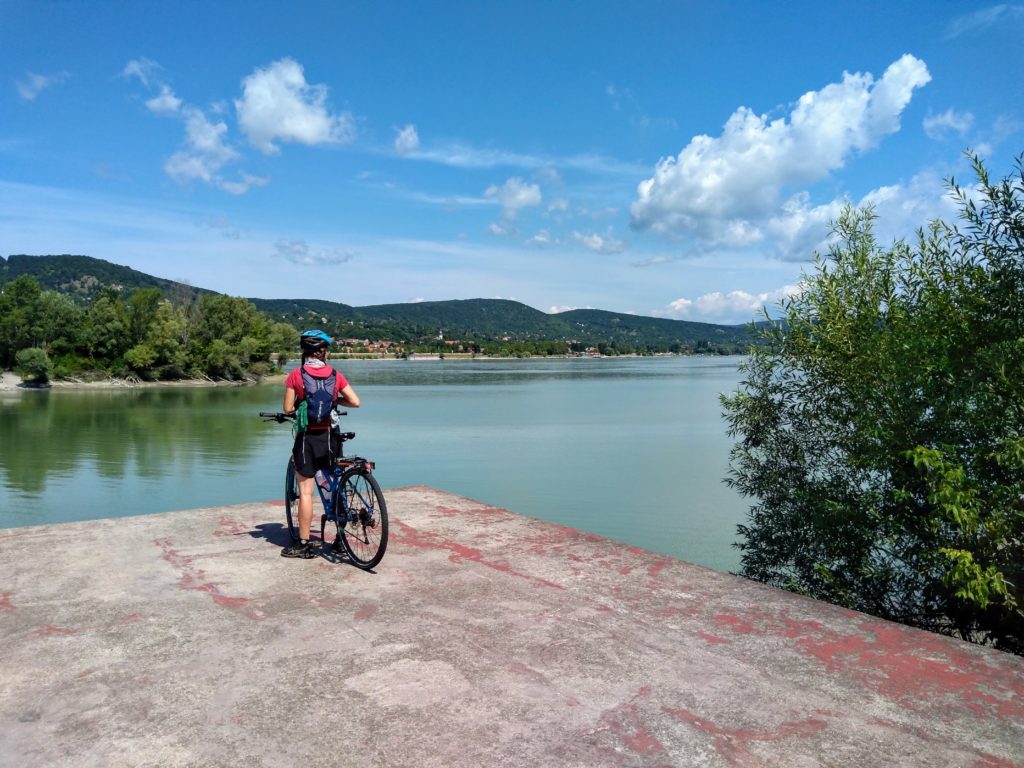
Country: Austria, Slovakia and Hungary
Elevation: flat (on average 294m/100 km or 1562 ft/100 miles)
Length: 339 km / 210 miles
Traffic: mostly designated bicycle lanes, some small roads with little traffic
Road quality: very good
Trains/public transportation: this route is quite short so even as a beginner, you should be able to cover it all by bike but if needed, you will be able to catch a train along the route.
Signage: Great. Just look for the EV6 signs, and you won’t get lost!
Highlights: Vienna, Bratislava, Dunajske Luhy protected area, the Danube Bend, ferry in Vác, Visegrad, Budapest.
Velo Baltica
I lived in Gdańsk for almost 8 years, and the routes along the Baltic Sea used to be my favourite weekend getaway with my bike. Breathing in the aroma of the cluster pine and listening to the sound of the waves has a truly therapeutic effect on your mind and soul.
Although the cycling infrastructure is supposedly better in Germany and Denmark, I decided to describe the Polish part of Velo Baltica simply out of personal sentiment.
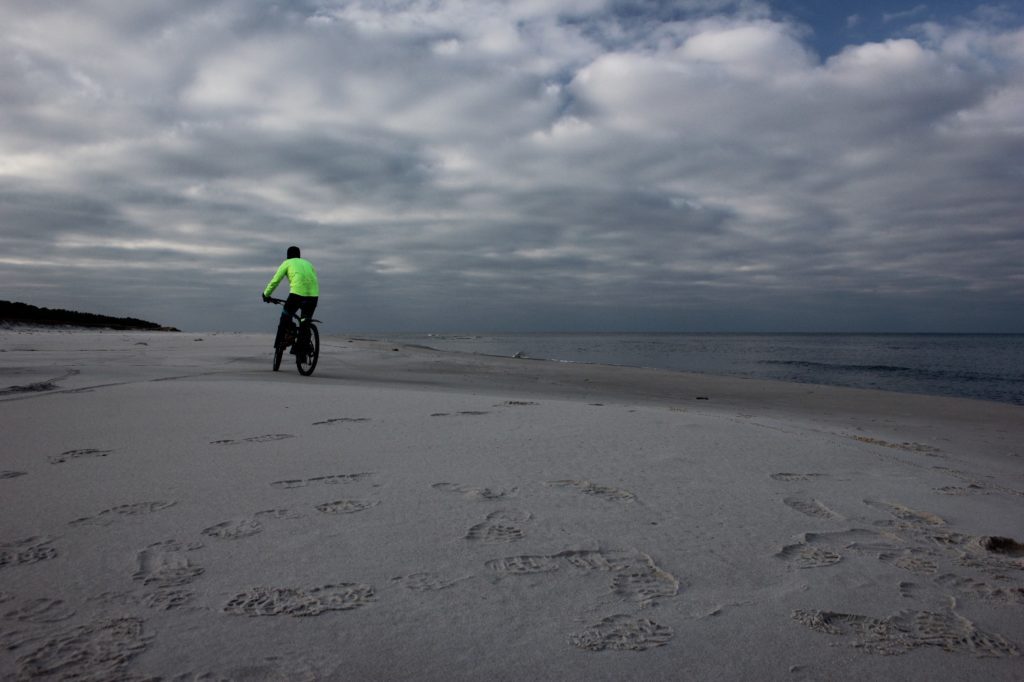
My route goes from Gdańsk to Świnoujście, but you can extend it to Rostock or even to Copenhagen, as it continues flat all the way to Denmark).
Country: Poland
Elevation: flat (on average 254 m/100 km or 1343 ft / 100 miles)
Length: 427 km / 265 miles
Traffic: very little
Road quality: decent, but there are some stretches around Leba where you might heavily struggle through sandy trails.
Alternative: take a detour to Hel for charming lighthouses, seals, and gorgeous beaches.
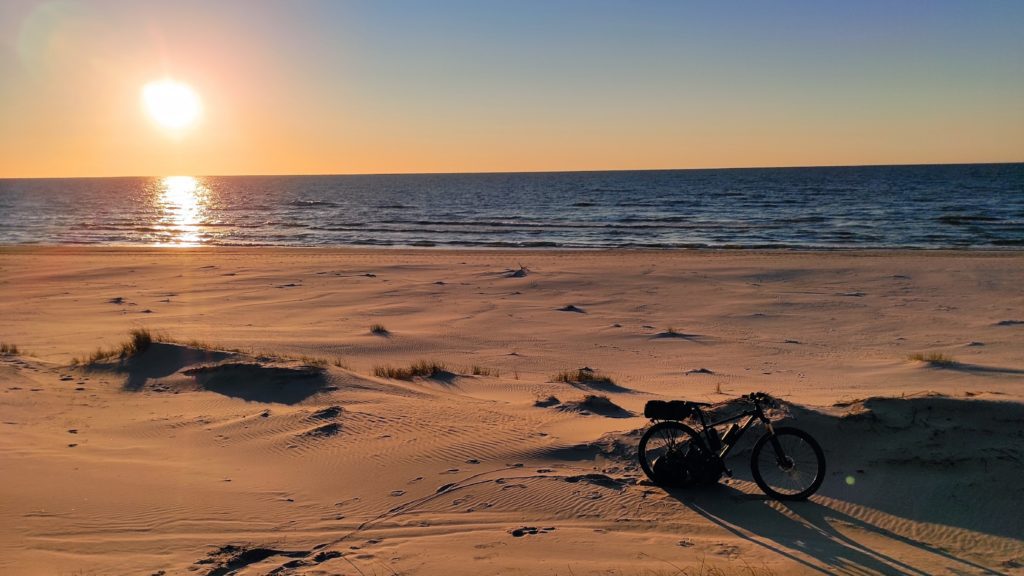
Trains/public transportation: It’s very easy to take a train with your bike between Gdańsk and Lębork (you can check the timetable on the SKM Trójmiasto website). Further west, there are fewer connections
GPS file: You can download the GPS file from EuroVelo’s official website. Most of the route is fully developed and marked, but some parts are still under development, so the GPS might be useful.
Highlights: the old town and Solidarity Center in Gdańsk, the dunes in Słowiński National Park, Sopot, Kołobrzeg, Świnoujście and the Wolin Island.
Flanders Route
Cycling is deeply woven into the culture and traditions of Belgium. The cobbled roads of the Tour of Flanders attract thousands of road cyclists from all over Europe. With its impressive network of cycle paths, cute historical towns and quiet forests, Flanders is also a perfect place for rookie bicycle tourers.
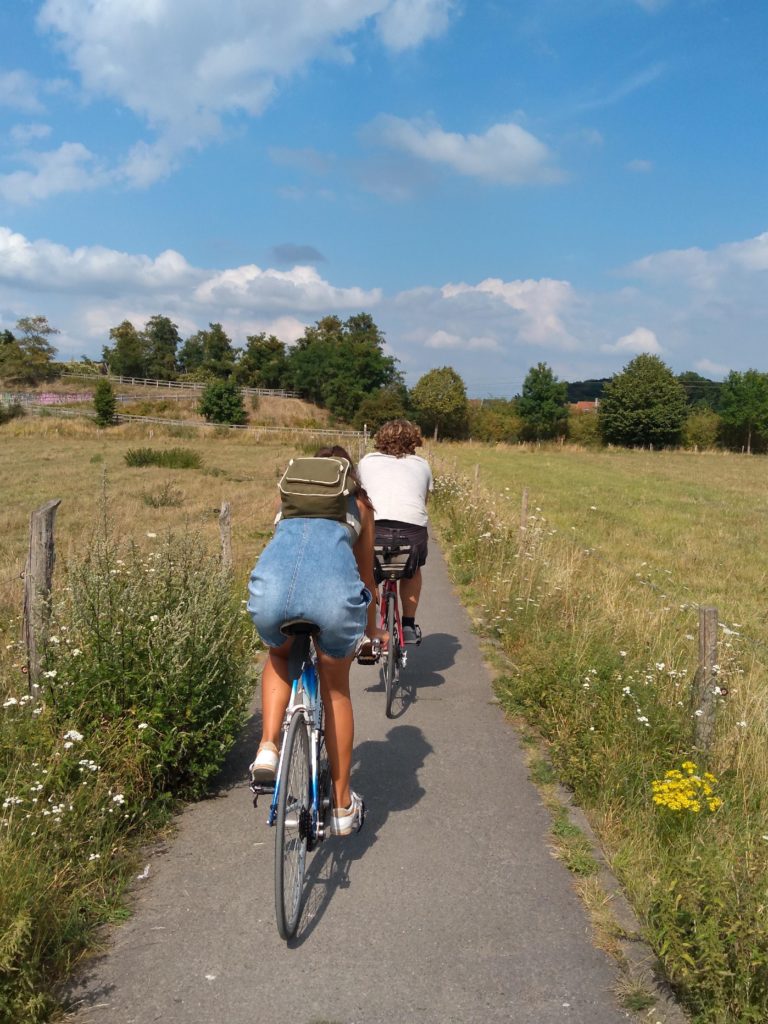
Country: Belgium
Elevation: slightly hilly (on average 479 m/100 km or 2665 ft / 100 miles).
Length: 949 km / 560 miles
Traffic: Most of the route is on designated bicycle lanes and only sometimes small roads with little traffic.
Road quality: Very good.
Alternatives: There are endless options to edit the route, with an incredible network of cycling routes in Flanders. It’s absolutely worth taking a detour to cycle through the water or through the trees.
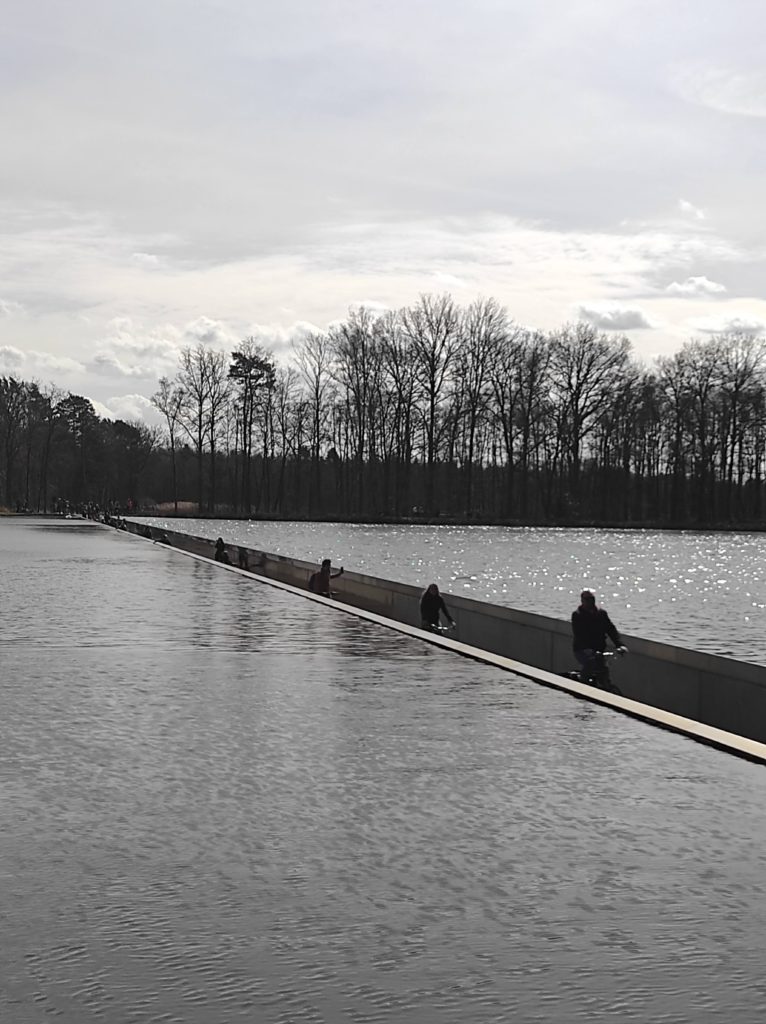
Trains/public transportation: It’s easy to take your bike on a train in Belgium, and there are frequent connections between cities. A bike supplement costs 4 euros.
Highlights: the famous Flemish cities Gent, Antwerp and Bruges; the beach in Oostende; the Town Hall and the beetle on the Needle in Leuven; Hoge Kempen National Park, and the bike paths through the Apple orchards in Limburg.
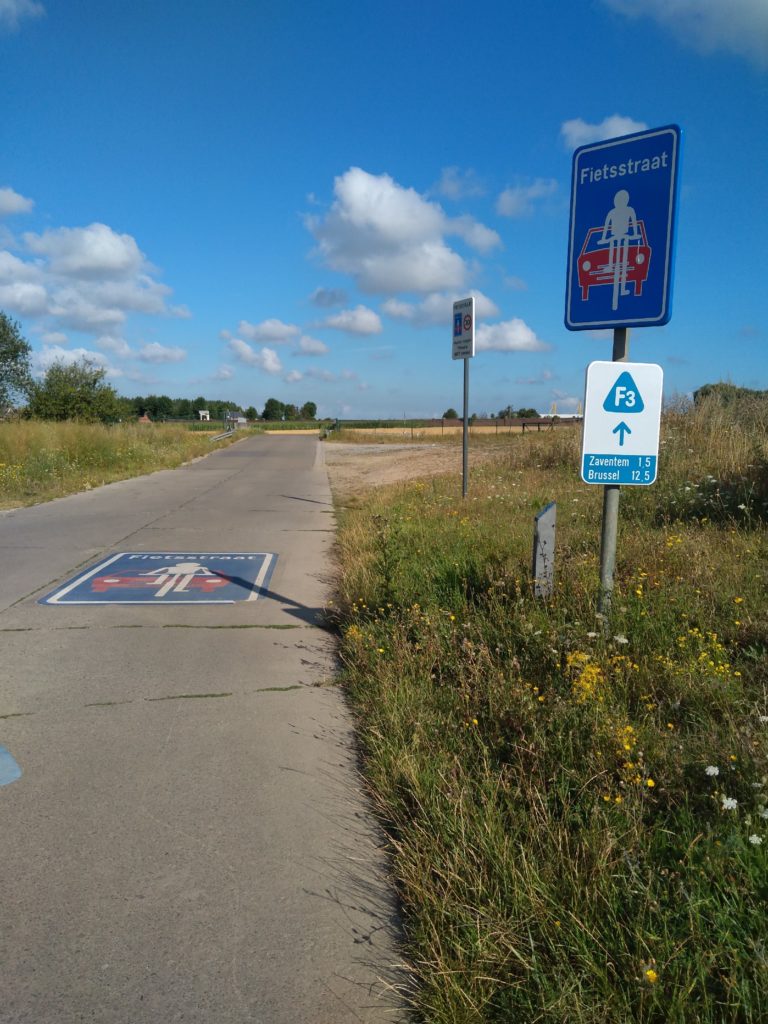
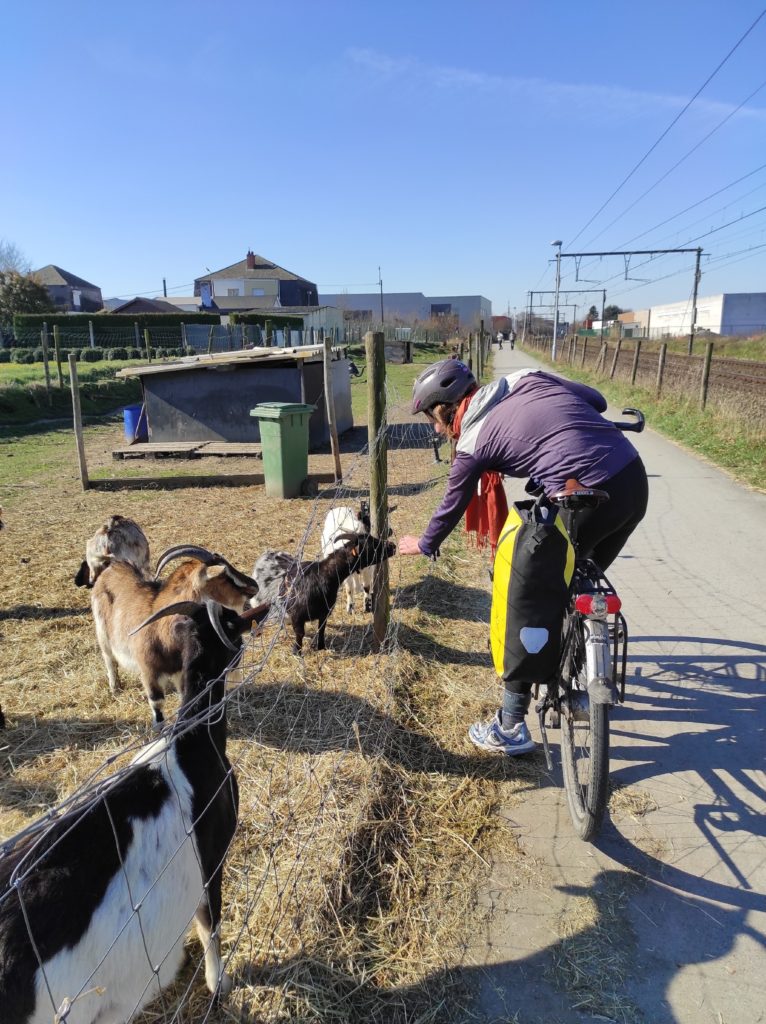
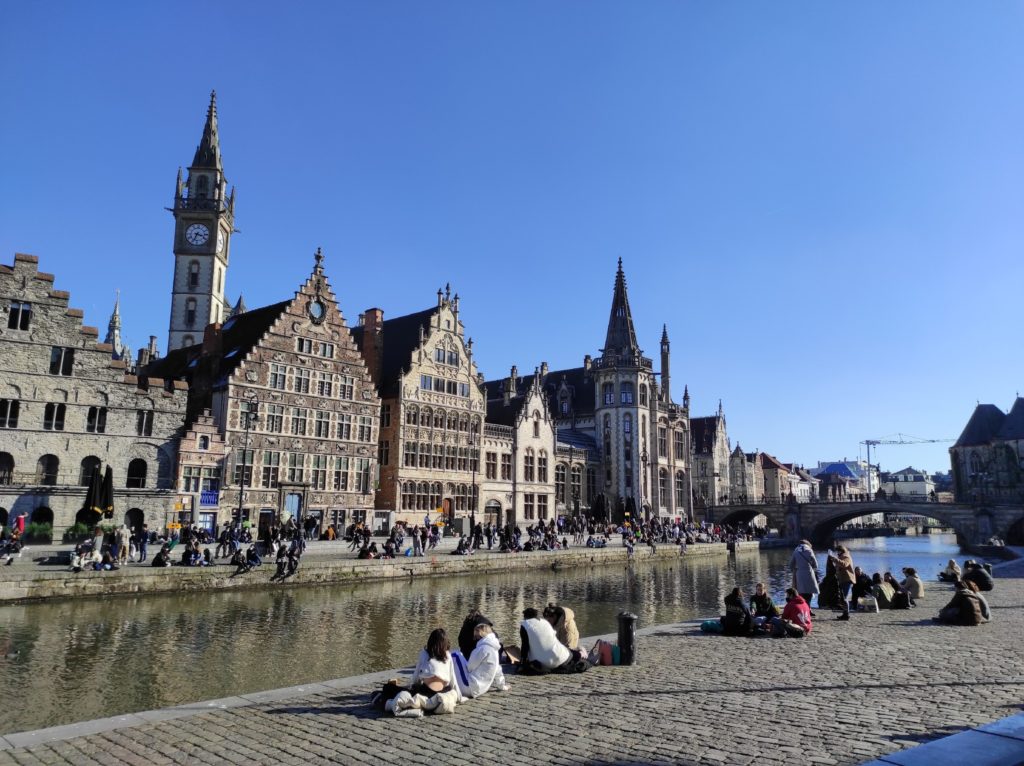
Elbe Cycling Route
Following the Elbe river from the mountains, through Prague, Dresden, Magdeburg, and Hamburg, all the way to the North Sea in Cuxhaven, the Elbe Cycling Route is one of Europe’s most various and scenic bicycle routes.
While almost 1300 kilometres sound overwhelming for a beginner cyclist, you can pick one section of the route depending on your preferences. If you appreciate the mountainous landscape, choose the part from Spindleruv Mlyn (it’s still mostly flat, don’t worry! ). The northern part of the Elbe Cycling Route will be perfect for those who like the sea, the Hanseatic cities and the lowlands.
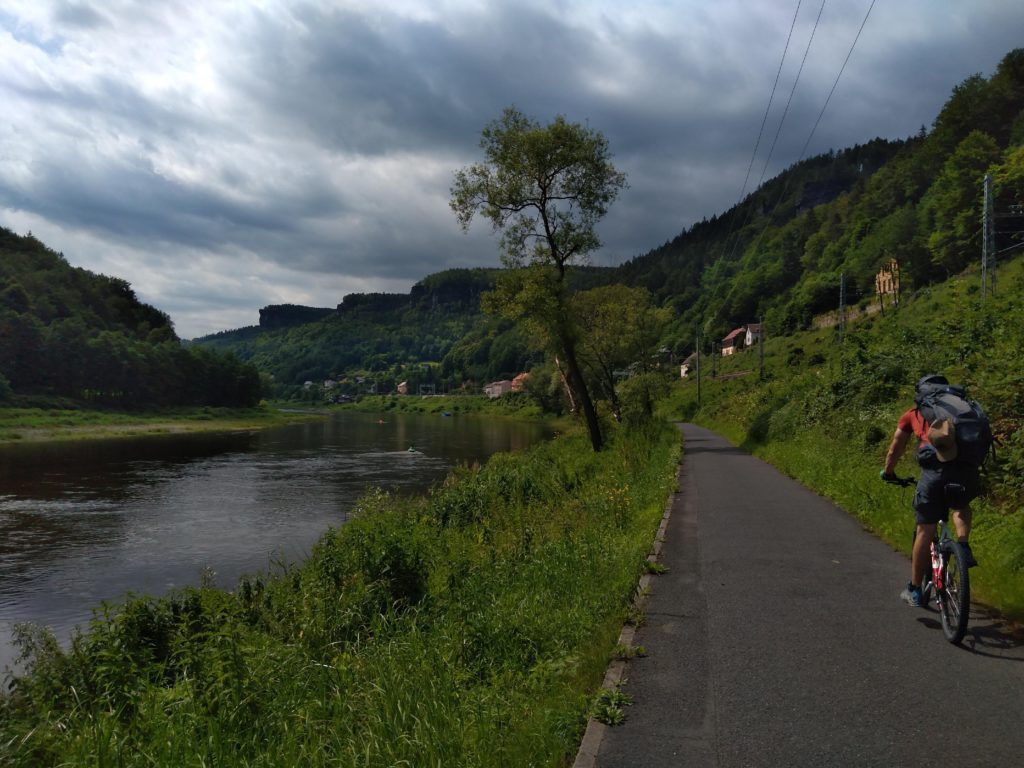
Country: Czech Republic / Germany
Elevation: flat (281 m/100 km or 1547 ft / 100 miles)
Length: 1197 km / 744 miles
Traffic: Very little. More than half of the route runs on designated bicycle lanes or paths.
Road quality: Good. Mostly asphalt, some gravel and dirt.
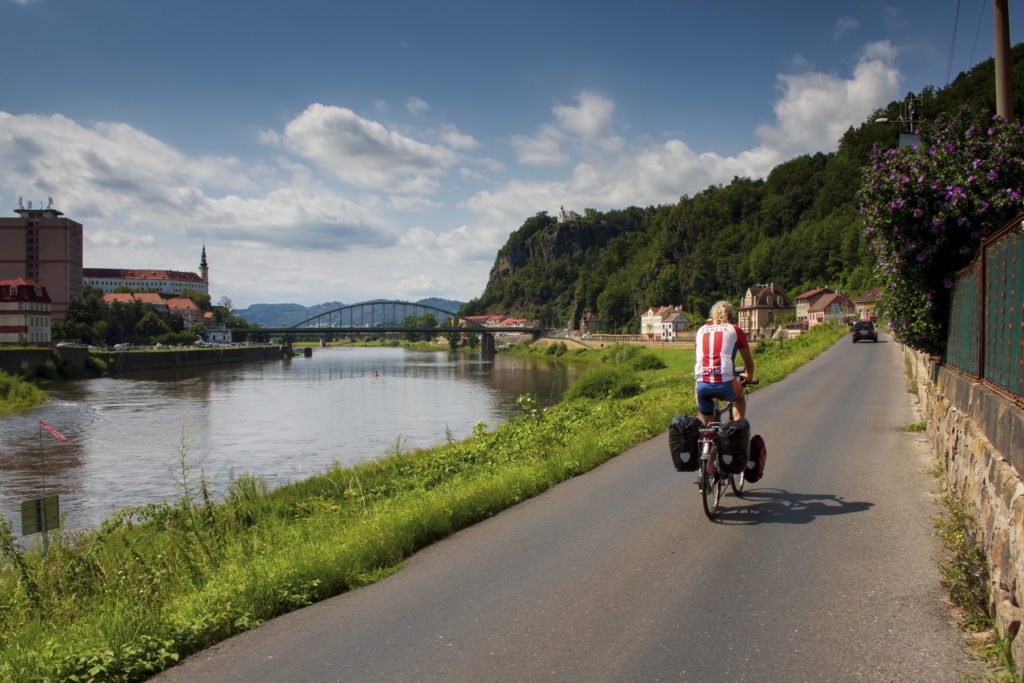
Trains/public transportation: Taking a bicycle on a train in Germany and in Czechia is relatively easy so you won’t have problems skipping a part of the route. Be aware that some intercity trains don’t take bikes on board.
Signage: Good
Highlights: Krkonose National Park, the rocky landscape of Saxon-Bohemian Switzerland, the old town of Prague, Dresden, and the port city of Hamburg.
The Dutch Coast
Each corner of the Netherlands is a paradise for cycling, no matter where you go. Forget those narrow, bumpy cycle lanes that make no sense which we know in most of the world. Here, the cyclist is king, and the infrastructure makes biking convenient, fast and safe.
If the main reason you didn’t venture to go on your first bicycle tour yet was the fear of cycling among cars, the Netherlands should be your first destination.
There are endless options for great cycling routes in the Netherlands, but my favourite one is the coast route, with picturesque dunes and lovely sandy beaches.
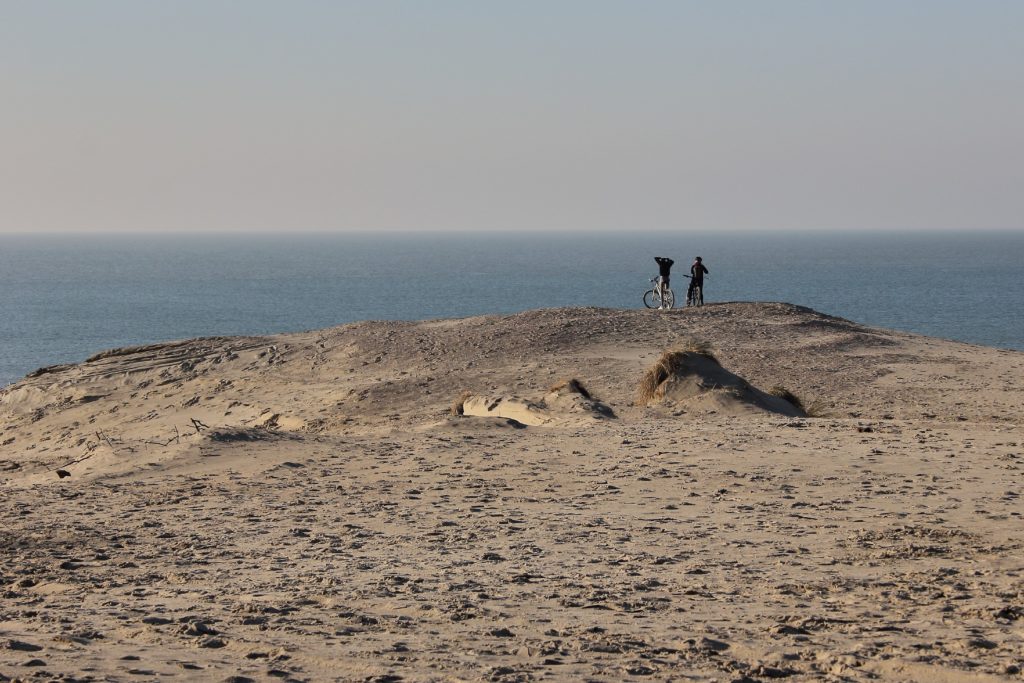
You can easily edit this route if you want to see the great Dutch cities such as Amsterdam, Rotterdam or Utrecht (probably the best cycling city in the world!). In the Netherlands, you never have to worry about the bicycle lanes and the safety, so it’s a perfect country to improvise, be creative and explore!
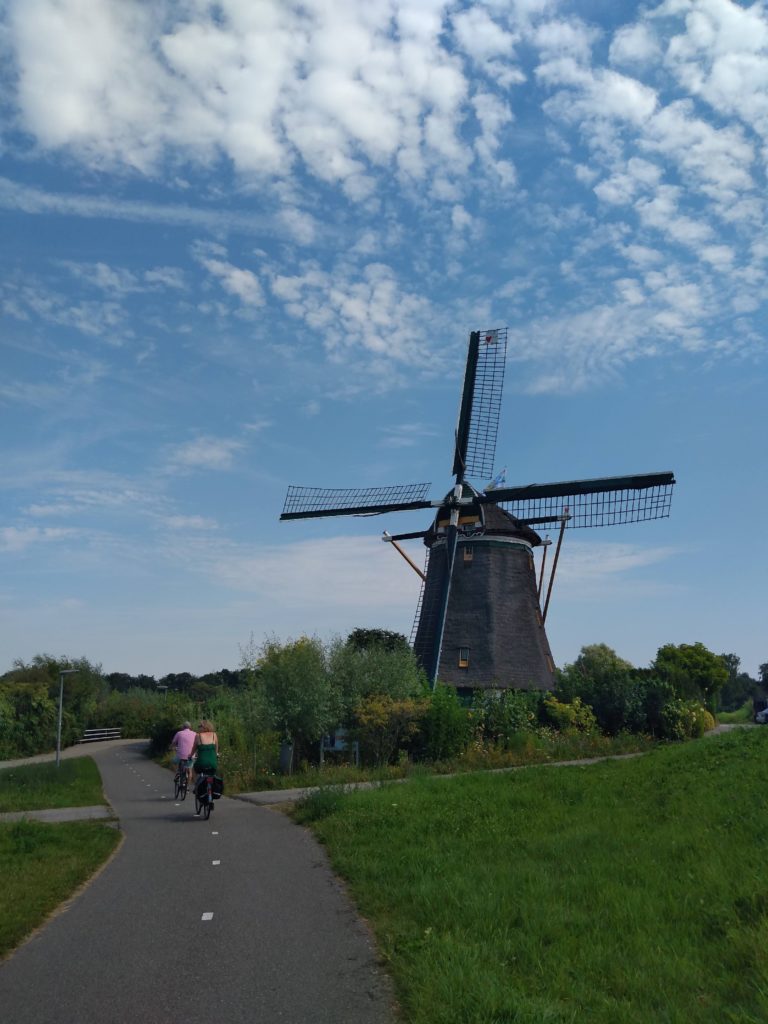
Country: the Netherlands
Elevation: flat like a pancake (on average 182 m/100 km or 960 ft / 100 miles)
Length: 621 km / 386 miles
Traffic: mostly designated bicycle lanes, some country roads with little traffic.
Road quality: very good/perfect for a road bike
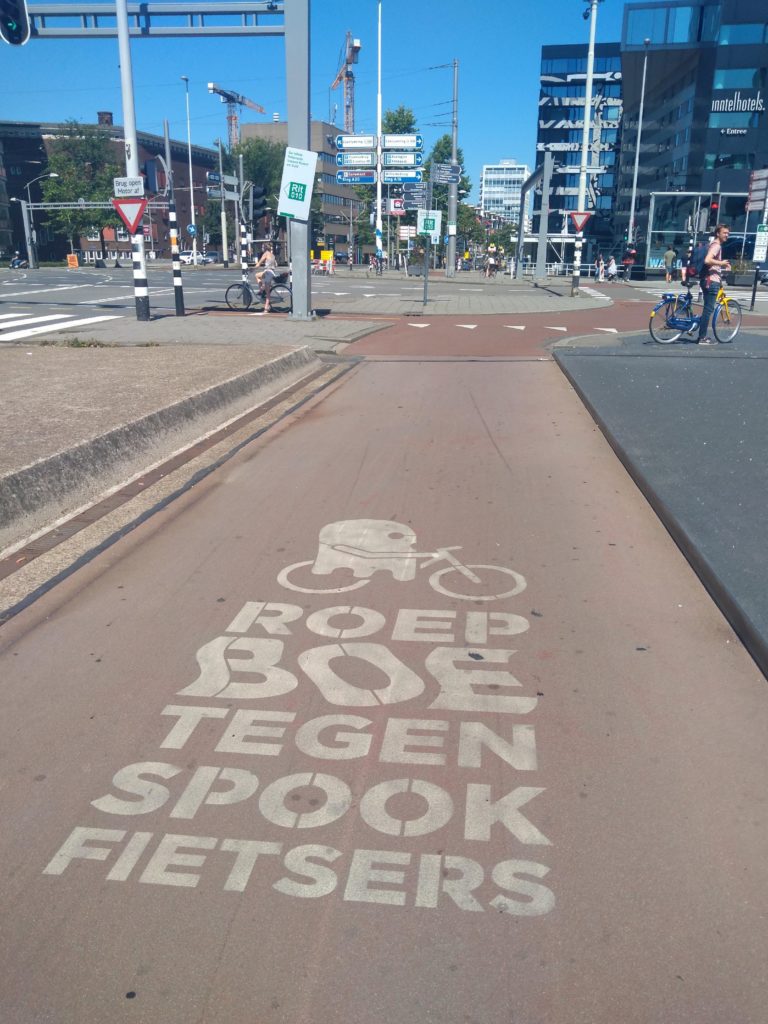
Trains/public transportation: it’s easy to take your bike on a train in the Netherlands
Signage: Great. There is also a special app with the route and practical information.
Important info: there are many ferries on this route. Always check their timetable beforehand!
Highlights: Peaceful Zeeland, cosmopolitan The Hague, Haarlem (sometimes called the little Amsterdam, but without the annoying tourists), the sand dunes near Zandvoort.
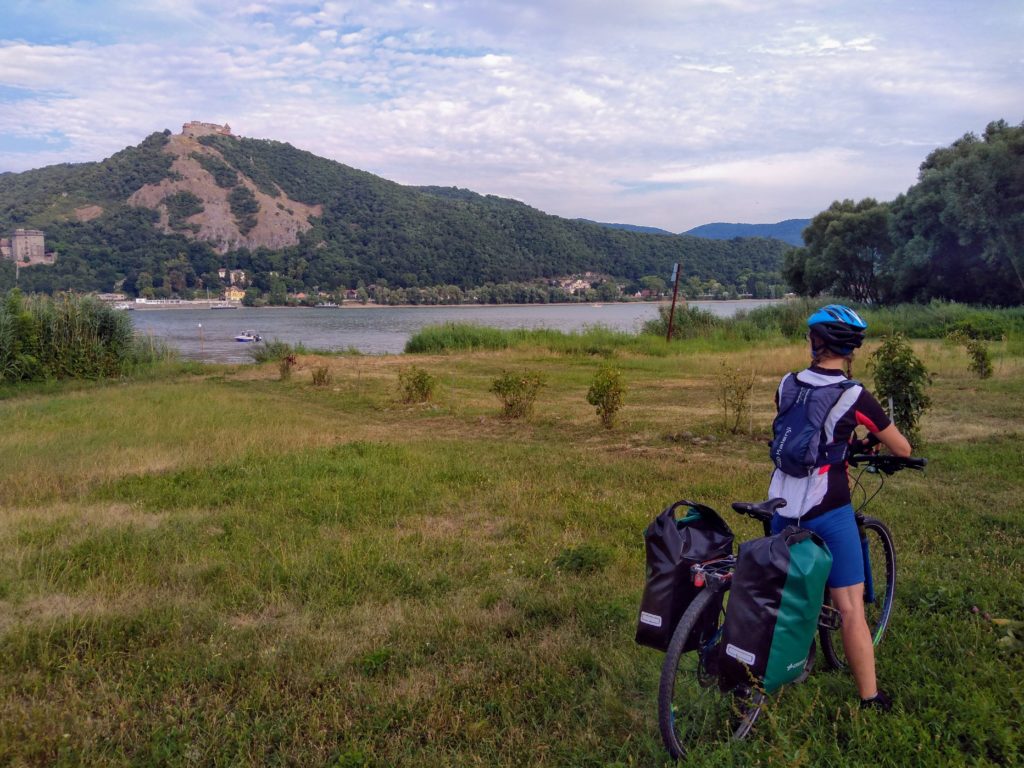
Pingback: Cycling in the Netherlands - Practical bike touring guide